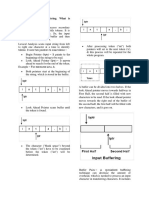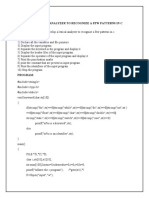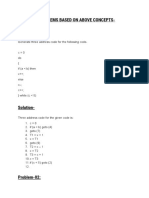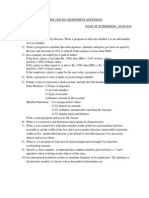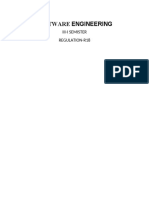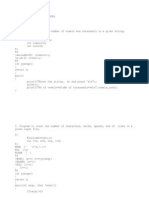0% found this document useful (0 votes)
3K views8 pagesNerate YACC Specification For A Few Syntactic Categories. A) Program To Recognize A Valid Arithmetic Expression That Uses Operator +, - , and
The document describes programs to recognize valid arithmetic expressions and variables. It provides Lex and YACC programs that:
1) Define tokens for operators, identifiers, and data types in Lex rules.
2) Specify grammar rules to recognize statements with expressions and declarations with types and identifiers in YACC.
3) Were compiled and run to validate sample input code.
Uploaded by
sudhakarm13Copyright
© © All Rights Reserved
We take content rights seriously. If you suspect this is your content, claim it here.
Available Formats
Download as DOC, PDF, TXT or read online on Scribd
0% found this document useful (0 votes)
3K views8 pagesNerate YACC Specification For A Few Syntactic Categories. A) Program To Recognize A Valid Arithmetic Expression That Uses Operator +, - , and
The document describes programs to recognize valid arithmetic expressions and variables. It provides Lex and YACC programs that:
1) Define tokens for operators, identifiers, and data types in Lex rules.
2) Specify grammar rules to recognize statements with expressions and declarations with types and identifiers in YACC.
3) Were compiled and run to validate sample input code.
Uploaded by
sudhakarm13Copyright
© © All Rights Reserved
We take content rights seriously. If you suspect this is your content, claim it here.
Available Formats
Download as DOC, PDF, TXT or read online on Scribd
/ 8










